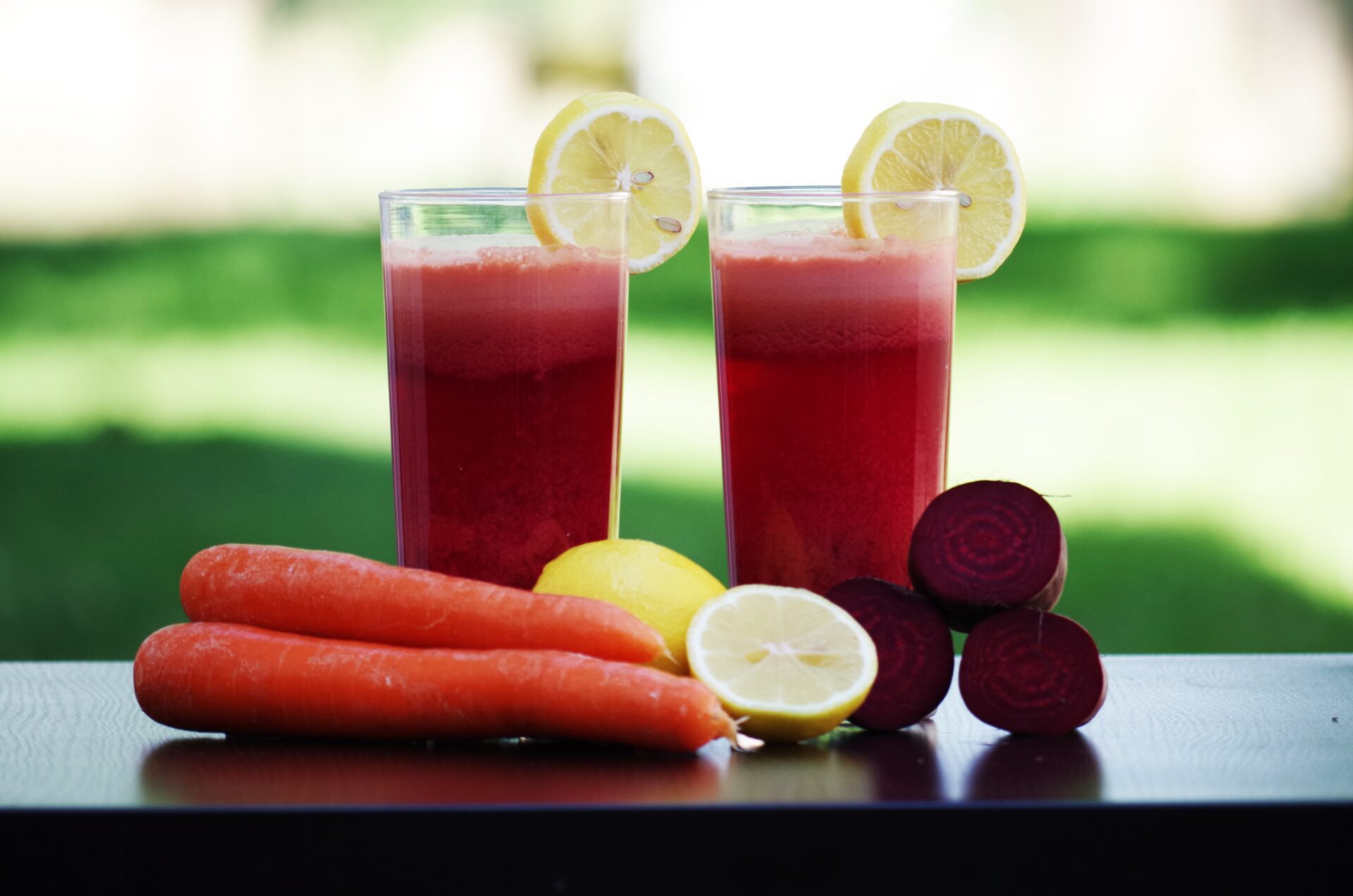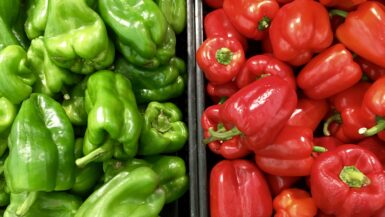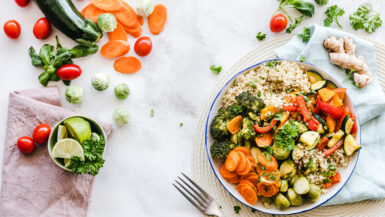Iron is an essential mineral that plays a crucial role in maintaining good health. It is responsible for the production of hemoglobin, a protein found in red blood cells that carries oxygen throughout the body. Iron is also necessary for the proper functioning of the immune system and the production of energy. While iron can be found in a variety of foods, many people do not consume enough of this vital mineral in their diets. In this article, we will explore the importance of iron in a healthy diet and the best sources of iron to ensure that you are getting enough of this vital nutrient.
The Importance of Iron in the Body
Iron is an essential mineral that plays a crucial role in maintaining good health. It is a key component of hemoglobin, a protein found in red blood cells that is responsible for carrying oxygen throughout the body. Iron is also involved in the production of myoglobin, a protein that helps store oxygen in muscles. Additionally, iron is necessary for the proper functioning of the immune system and the synthesis of DNA.
Without adequate amounts of iron, the body cannot produce enough red blood cells, and as a result, oxygen delivery to the body’s tissues and organs is impaired. This can lead to fatigue, weakness, and shortness of breath. Iron deficiency can also compromise the immune system, making individuals more susceptible to infections.
Iron is involved in many other important bodily functions as well. For example, it is necessary for the production of certain hormones and neurotransmitters, and it helps regulate body temperature. As such, getting enough iron in your diet is crucial for maintaining optimal health and well-being.
How Much Iron Do You Need in Your Diet?
The amount of iron you need in your diet depends on several factors, such as age, gender, and overall health. The recommended daily intake of iron varies by age and gender, with adult men and postmenopausal women requiring less iron than premenopausal women and children.
According to the National Institutes of Health (NIH), the recommended daily allowance (RDA) of iron for adult men and postmenopausal women is 8 milligrams (mg) per day. However, premenopausal women need almost double that amount, with an RDA of 18 mg per day. Children also require varying amounts of iron depending on their age, with infants needing the most at 11 mg per day and older children requiring between 7-10 mg per day.
It is important to note that certain individuals may require more or less iron than the RDA due to factors such as pregnancy or medical conditions that affect iron absorption or utilization. In such cases, it is best to consult a healthcare professional to determine the appropriate amount of iron needed for optimal health.
Getting enough iron in your diet is important, but it is also possible to consume too much iron. Overconsumption of iron can lead to iron toxicity, which can cause serious health problems. Therefore, it is crucial to get the right amount of iron for your individual needs. In the next section, we will discuss iron-rich foods that you can incorporate into your diet to ensure you are getting the right amount of iron.
Iron-Rich Foods to Include in Your Diet
Including iron-rich foods in your diet is an effective way to ensure that you are getting enough iron. There are two types of dietary iron: heme and non-heme. Heme iron is found in animal-based foods, such as meat, poultry, and fish, while non-heme iron is found in plant-based foods, such as leafy greens, beans, and fortified cereals.
Foods high in heme iron include beef, liver, chicken, turkey, and seafood such as oysters, clams, and shrimp. Plant-based sources of iron include spinach, kale, lentils, beans, tofu, fortified cereals, and nuts such as almonds and cashews. Combining non-heme iron sources with vitamin C-rich foods, such as citrus fruits, tomatoes, and bell peppers, can help increase iron absorption.
It is important to note that some foods, such as dairy products and tea, can inhibit iron absorption. Therefore, it is best to avoid consuming these foods at the same time as iron-rich foods.
Incorporating a variety of iron-rich foods into your diet is key to ensuring that you are meeting your daily iron needs. If you are struggling to meet your iron needs through diet alone, supplementation may be necessary. In the next section, we will discuss when iron supplements may be necessary.
The Difference Between Heme and Non-Heme Iron
As mentioned earlier, there are two types of dietary iron: heme and non-heme. Heme iron is found in animal-based foods, such as meat, poultry, and fish, while non-heme iron is found in plant-based foods, such as leafy greens, beans, and fortified cereals.
Heme iron is generally more easily absorbed by the body than non-heme iron. This is because heme iron is bound to a protein called hemoglobin, which is similar to the protein found in human blood. As a result, the body is better able to recognize and utilize heme iron.
Non-heme iron, on the other hand, is not as easily absorbed by the body. This is because it is not bound to a protein like heme iron is. However, there are ways to increase the absorption of non-heme iron. Consuming non-heme iron sources with vitamin C-rich foods, such as citrus fruits, tomatoes, and bell peppers, can help increase absorption. Conversely, consuming foods or beverages that inhibit iron absorption, such as dairy products and tea, can decrease absorption.
It is important to note that while heme iron is more easily absorbed by the body, it is still possible to meet your daily iron needs through non-heme iron sources alone. Vegetarians and vegans, who do not consume animal-based foods, can still obtain adequate amounts of iron through plant-based sources.
In the next section, we will discuss the symptoms and risks associated with iron deficiency.
Iron Deficiency and Its Symptoms
Iron deficiency is a common nutritional deficiency and can lead to a variety of symptoms. When the body does not have enough iron, it cannot produce enough hemoglobin, which can result in a condition called anemia. Anemia can cause fatigue, weakness, shortness of breath, dizziness, and headaches.
In addition to anemia, iron deficiency can also affect the immune system, making individuals more susceptible to infections. It can also cause restless leg syndrome, a condition characterized by an uncontrollable urge to move the legs, especially at night.
Iron deficiency can occur for a variety of reasons. Inadequate dietary intake of iron, poor absorption of iron, and blood loss are all common causes. Women are particularly at risk of iron deficiency due to blood loss during menstruation, pregnancy, and breastfeeding.
The best way to prevent iron deficiency is to consume a diet rich in iron and to ensure that your body is able to absorb the iron you consume. Consuming iron-rich foods with vitamin C-rich foods, such as citrus fruits, can help increase absorption. Iron supplementation may also be necessary in cases of severe deficiency or if an individual is unable to consume enough iron through diet alone.
In the next section, we will discuss who is at risk of iron deficiency and the importance of getting enough iron during pregnancy.
Who Is at Risk of Iron Deficiency?
Iron deficiency can affect anyone, but certain individuals are more at risk than others. Women, particularly those who are pregnant or breastfeeding, are at an increased risk of iron deficiency due to the increased demand for iron during these times. Menstruating women are also at a higher risk due to blood loss during menstruation.
Infants and young children are also at risk of iron deficiency, as they require more iron for growth and development. Premature infants are especially vulnerable to iron deficiency due to their low birth weight and decreased iron stores at birth.
Individuals with certain medical conditions, such as gastrointestinal disorders that affect iron absorption, are also at an increased risk of iron deficiency. Additionally, individuals who follow a vegetarian or vegan diet may have a harder time meeting their daily iron needs, as plant-based sources of iron are not as easily absorbed by the body as heme iron sources.
It is important to be aware of the signs and symptoms of iron deficiency, as early detection and treatment can prevent further health complications. If you suspect that you may be at risk of iron deficiency, speak with your healthcare provider to determine the best course of action.
In the next section, we will discuss when iron supplements may be necessary to meet your daily iron needs.
Iron Supplements: When Are They Necessary?
While it is best to obtain your daily iron needs through a healthy diet, iron supplements may be necessary in certain situations. Iron supplements are typically recommended for individuals who are unable to meet their daily iron needs through diet alone, such as those with severe iron deficiency or those with medical conditions that affect iron absorption.
Iron supplements come in various forms, such as tablets, capsules, and liquids. It is important to take iron supplements as directed by a healthcare provider, as excessive iron intake can lead to iron toxicity. Symptoms of iron toxicity include nausea, vomiting, abdominal pain, and in severe cases, organ failure.
It is also important to note that iron supplements can interact with certain medications, such as antibiotics and antacids. Therefore, it is important to inform your healthcare provider of any medications or supplements you are taking before starting an iron supplement regimen.
Overall, iron supplements can be an effective way to ensure that you are meeting your daily iron needs. However, it is important to speak with a healthcare provider before starting any supplement regimen to determine if it is necessary and safe for you.
Iron toxicity: what you need to know
Iron is an essential mineral that plays a crucial role in the body’s functioning. However, like many nutrients, too much of a good thing can be harmful. Iron toxicity, or iron overload, is a condition where there is an excessive amount of iron in the body. This can lead to organ damage and other health complications.
Iron toxicity is usually caused by excessive iron supplementation, hereditary hemochromatosis, or repeated blood transfusions. Symptoms of iron toxicity include nausea, vomiting, diarrhea, abdominal pain, and fatigue. In severe cases, it can cause liver damage, heart failure, and even death.
It is important to note that iron toxicity is rare and usually only occurs in individuals with pre-existing medical conditions or those who take iron supplements without a doctor’s prescription. Most people can safely consume iron-rich foods without any risk of toxicity.
If you suspect that you may have iron toxicity, it is important to seek medical attention immediately. A doctor can perform blood tests to determine the amount of iron in your body and provide appropriate treatment.
Overall, while iron is an essential nutrient, it is important to consume it in moderation. Iron toxicity is a serious condition that can have severe consequences. It is important to consult with a healthcare professional before taking iron supplements and to consume iron-rich foods as part of a balanced diet.
Iron and pregnancy: why it’s important
Iron is a crucial nutrient during pregnancy as it is needed to support the growth and development of the fetus. Pregnant women require more iron than non-pregnant women to support the increase in blood volume and the development of the placenta.
Iron deficiency anemia is a common condition during pregnancy, affecting up to 50% of pregnant women worldwide. Symptoms of iron deficiency anemia include fatigue, weakness, shortness of breath, and pale skin. If left untreated, it can increase the risk of preterm birth, low birth weight, and maternal mortality.
Pregnant women should aim to consume at least 27 milligrams of iron per day. Iron-rich foods such as lean red meat, poultry, fish, and fortified cereals can help meet this requirement. However, some women may need to take iron supplements to prevent iron deficiency anemia.
It is important to note that excessive iron intake can also be harmful during pregnancy. Iron supplements should only be taken under the guidance of a healthcare professional. Consuming too much iron can lead to iron toxicity, which can harm the fetus.
In conclusion, iron is an essential nutrient during pregnancy that supports the growth and development of the fetus. Pregnant women should aim to consume iron-rich foods and may need to take iron supplements under the guidance of a healthcare professional. Iron deficiency anemia should be promptly treated to prevent adverse pregnancy outcomes.





Leave a reply